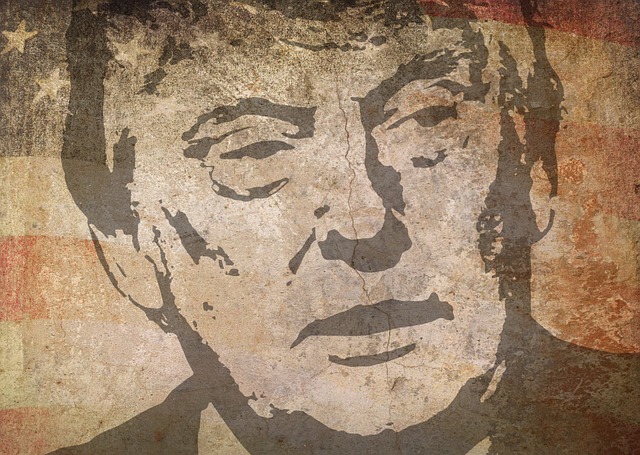***
OFF THE CUFF II
Well, I was wrong. Donald Trump made it to center stage. The Electoral College has spoken. But in receiving phone calls and emails as to reactions to what transpired I decided I needed to clarify a few things. As my previous article “Off the Cuff” indicated I did think Hillary would win, but by default more than anything else. In other words, I was not in favor of either candidate. My disfavor was primarily tied to the fact that neither candidate offered any legitimate support in terms of the public becoming better informed as to the ideological realities of our American experiment. In short I have not been wrong in saying that the U.S. is a capitalist system, nor in arguing that we have an ill-equipped public in terms of civic education considerations that will help us understand what being capitalist might mean, nor in suggesting that the presidential candidates provided little in terms of addressing this significant shortcoming.
I’ll also add that I made these points as strongly as one individual could to the Obama Administration when he took office almost a decade ago. In short, we needed then (as we do now) to get more people interested in political logic which in turn might have inspired more voter engagement/involvement and, most importantly, would have substantially mitigated the situation of our voting public relying so much on their emotions/opinions and immediate needs without understanding the larger-picture concerns. Given his own election struggles I was hoping Obama might attach to the vision of a better informed citizenry and help address the seriousness of the situation within his tenure. However he did nothing to encourage education leaders to look in this direction, education leaders did nothing to encourage him (they tend to be a rather timid and incongruent herd) and the Trump phenomenon happened.
It’s worth noting that Trump, who is clearly a capitalist – with limited “public-civic good” experience – should demonstrate to us the actual effectiveness of his modus operandi. In this sense his corporatizing/privatization of the government (this seems to have already happened within the executive branch) may indeed be both perilous and painful. Yet whatever unfolds it will inform us as to what this approach may be like. Positively speaking then, whatever comes next should be nothing short of instructional.
Again, it’s certainly subject to question whether the new president can/will give up much in terms of market share. And it’s important to add that the system itself is rigged in profit regard. As important is that under his Machiavellian form of “apparent transparency” – artfully telling people what they want to hear, providing just a little in that regard, and ultimately doing his best to get what he wants – our ill-informed public may find it difficult to untangle what happens anyway.
The notion of his “draining of the swamp” needs some attention. This is certainly not a bad thought in terms of the mess that has developed in our nation’s capital over the past half-century. But it should be evident that Trump and his cronies/appointees may not be the best, most trustworthy arbiters of what and who should be flushed. Moreover, could there be a new, more treacherous swamp in the making? Also don’t forget that even for many of those who opposed his campaign, they still want/need a job that will keep them in public life – a fact that Trump, the crafty realist, definitely keeps in sight. And on a related note, keep your own eye on the “good guy-bad guy” routine. Anyone of his colleagues can, on occasion, play the latter while the President plays the former, allowing for his “softer side” to be better recognized for public consumption. (Of course there are issues with Trump’s business/corporate/conflict of interest interests, and his dealings with Putin and other foreign leaders, his statements on the environment, and on people, and the wall, and war, and… )
I know that most non-Trump supporters, and there are many, are skeptical of him making any real changes in terms of what he has already put before us. But perhaps over the next four years he might be persuaded to bend his ego, perhaps out of sense of becoming “one of the greatest leaders in U.S. history” he might move in the direction of really examining and then working toward public good. And in this context, perhaps, among other things, he will call for a national initiative in terms of bettering civic education so people can understand the nature of what they vote (and don’t vote) for. This notion certainly represents the longest of long shots, but given some chance, who knows. We have certainly seen stranger things happen, no?
In closing it’s important to mention that for those who feel ill at ease with the election outcome they might want to turn their attention to themselves as well. In other words people need to ask themselves and others around them how much they know about the ideological factors tied to the issues facing our American experiment, how well they really understand liberal and conservative logic, how these views link to democracy, capitalism, and concepts like socialism and communism, and how principles like equality and freedom get actualized in the mix. It could well be that this recognition, along with whatever political and social fallout that continues, gets translated into a national call for improving our civic education.
It seems a no-brainer that we have nowhere to go but in this direction if we are to move forward in regards to whomever, now or in the future, assumes the mantle of our president. Let’s hope we can use our collective heads accordingly. Like the refrain of the recently passed and forever great Leonard Cohen suggests, “we asked for signs – the signs were sent…”
About the author:
 Jim Palombo is politics editor of Ragazine.CC. You can read more about him in About Us.
Jim Palombo is politics editor of Ragazine.CC. You can read more about him in About Us.

Recent Comments